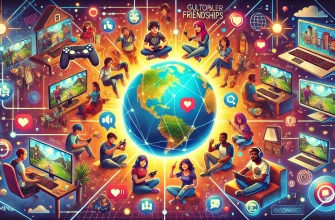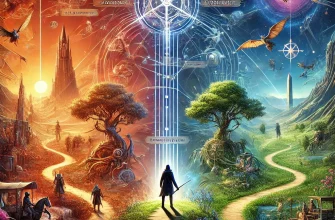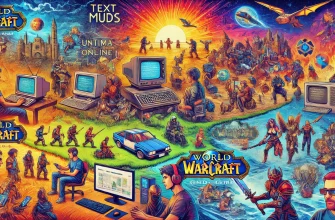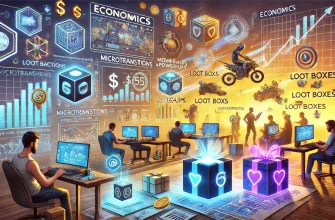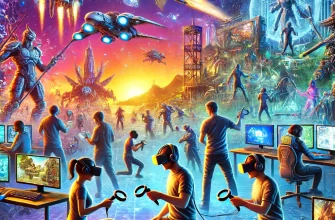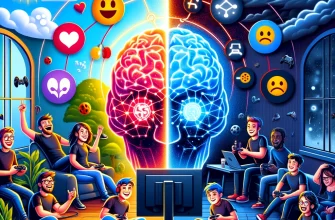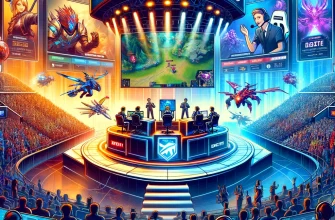In today’s digital era, online gaming has evolved into a significant platform for fostering connections and building communities. Millions of players interact daily, transcending geographical boundaries and uniting people from diverse cultures, languages, and backgrounds. For many, these virtual environments have become places where enduring friendships are established.
This article delves into how online games nurture global connections, the psychological and social advantages of these friendships, and the real-world impact of these virtual bonds.
- The Social Nature of Online Games
- Cooperative Gameplay
- Competitive Dynamics
- Persistent Worlds
- Breaking Down Barriers
- Crossing Geographical Boundaries
- Language and Cultural Exchange
- Inclusive Environments
- Psychological Benefits of Virtual Friendships
- Sense of Belonging
- Shared Achievements
- Emotional Support
- Real-World Impacts of Virtual Friendships
- Meeting in Real Life
- Lifelong Connections
- Challenges in Building Virtual Friendships
- Miscommunication
- Toxicity
- Maintaining Boundaries
- Tips for Building Healthy Virtual Friendships
- Communicate Clearly
- Join Communities
- Be Consistent
- Stay Safe
- Transition to Real Life When Comfortable
- The Future of Gaming Friendships
- Virtual Reality (VR)
- AI Integration
- The Metaverse
- Conclusion
The Social Nature of Online Games
Cooperative Gameplay
Many online games are designed to encourage teamwork. Players must collaborate to achieve common goals, promoting communication and camaraderie.
Example: In games such as World of Warcraft or Destiny 2, players form teams to tackle challenging missions, requiring coordination and trust.
Competitive Dynamics
Even in competitive settings, friendships often form as players bond over shared strategies, victories, and defeats.
Example: Esports communities in games like League of Legends and Valorant provide spaces where rivals frequently become allies.
Persistent Worlds
MMORPGs (Massively Multiplayer Online Role-Playing Games) feature persistent worlds where players spend hours exploring, trading, and building relationships over time.
Example: In Final Fantasy XIV, players join guilds, chat regularly, and celebrate in-game milestones together, mirroring real-world social groups.
Breaking Down Barriers
Crossing Geographical Boundaries
Online games connect players from all over the world, enabling interactions that would otherwise be impossible.
Example: A player in Japan can team up with someone in Brazil for a match in Fortnite, creating an instant connection despite physical distance.
Language and Cultural Exchange
Games offer opportunities for cultural exchange and language practice, broadening players’ horizons and fostering mutual respect.
Example: Multiplayer games with text or voice chat, like Minecraft, often lead to players teaching each other phrases or sharing cultural insights.
Inclusive Environments
Many games emphasize inclusivity, allowing players to create avatars that represent their identities and join communities where they feel accepted.
Example: Social games like Animal Crossing or The Sims Online provide safe spaces for self-expression and connection.
Psychological Benefits of Virtual Friendships
Sense of Belonging
For individuals who struggle with loneliness or social anxiety, online gaming communities offer a sense of belonging and acceptance.
Study Insight: Research from the American Psychological Association highlights how online friendships can boost self-esteem and reduce feelings of isolation.
Shared Achievements
Collaborating with others to achieve in-game goals fosters trust, mutual respect, and shared joy, deepening bonds.
Example: Successfully completing a difficult raid in Elder Scrolls Online often strengthens team relationships.
Emotional Support
Gaming friends often become confidants, providing emotional support during challenging times.
Real-Life Example: There are numerous stories of players reaching out to help their online friends through mental health struggles or real-world crises.
Real-World Impacts of Virtual Friendships
Meeting in Real Life
Many online friendships transition into real-life meetings, often at gaming conventions, tournaments, or casual meetups.
Example: Events like TwitchCon and BlizzCon are hubs where gaming friends gather, strengthening their bonds.
Lifelong Connections
Virtual friendships often endure, with many players maintaining relationships over years, even if they stop playing the game.
Real-Life Example: Numerous couples have met through online games, with gaming communities facilitating real-world relationships and even marriages. Professional Opportunities
Gaming connections often pave the way for professional endeavors, especially within the expanding realms of esports, streaming, and game development.
Example: Esports teammates frequently form enduring partnerships, aiding each other’s careers beyond merely playing games.
Challenges in Building Virtual Friendships
Miscommunication
Text or voice chats can sometimes lead to misunderstandings due to cultural differences or linguistic barriers.
Toxicity
Although many gaming communities are welcoming, some are plagued by negative behaviors like harassment or trolling.
Maintaining Boundaries
Balancing online friendships with real-life responsibilities can be difficult, especially for younger players.
Tips for Building Healthy Virtual Friendships
Communicate Clearly
- Be respectful and patient in your interactions.
- Utilize in-game tools such as text chat or voice channels to enhance communication.
Join Communities
- Seek out gaming groups, guilds, or forums that match your interests.
- Platforms like Discord are great for forming gaming friendships.
Be Consistent
- Regular gaming sessions help to strengthen bonds with other players.
- Celebrate in-game achievements or victories with your friends.
Stay Safe
- Protect your personal information and establish boundaries in online interactions.
- Report and block toxic players to maintain a positive experience.
Transition to Real Life When Comfortable
- If the friendship seems genuine, consider connecting on social media or meeting at events.
The Future of Gaming Friendships
Virtual Reality (VR)
With the advancement of VR technology, more immersive social experiences will emerge, allowing players to interact in realistic virtual spaces.
Example: Platforms like VRChat already offer environments for players to socialize using creative, personalized avatars.
AI Integration
AI-driven tools might facilitate better communication and understanding among players from various backgrounds.
The Metaverse
As the concept of the metaverse evolves, online gaming will likely play a pivotal role in creating interconnected virtual worlds where friendships can thrive.
Conclusion
Online gaming has revolutionized the way we form and sustain relationships, building a global network of players who connect, cooperate, and support one another. By overcoming geographical and cultural barriers, games have become a powerful medium for developing meaningful friendships in the virtual world. Whether you’re teaming up for a raid, chatting in a guild, or competing in an esports match, the connections you forge in the gaming world often extend beyond the screen, enriching your life in significant and unexpected ways.


